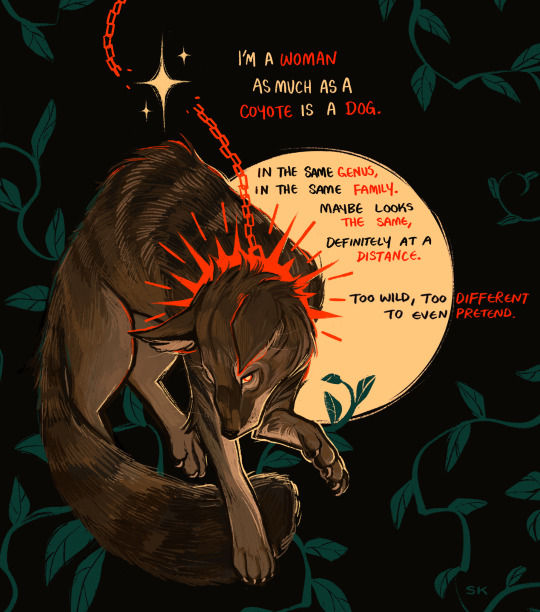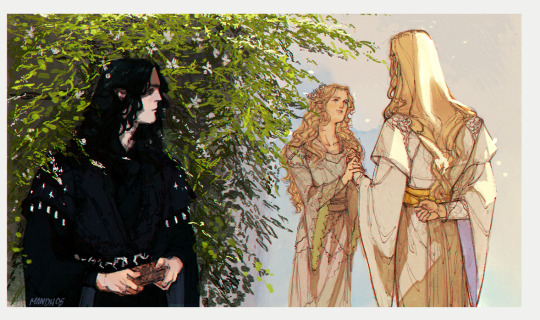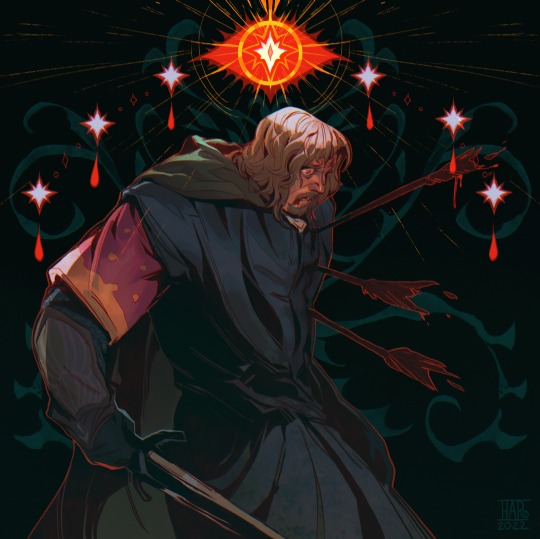you can find me where the sea pours into the stars Art tag #drawings ✵ I am @archein5
Don't wanna be here? Send us removal request.
Text




Happy New Year, my friends! =)
1K notes
·
View notes
Text
I don't know half of Tolkien lore half as well as I should like, and I've studied less than half of it half as much as it deserves.
2K notes
·
View notes
Text


Image description: It's a drawing of Mel Medarda from Arcane. She's drawn in her season 2 outfit. She's looking up with a determined expression while she holds her right hand in her lap. Runes and magic flow around her. End of description.
2K notes
·
View notes
Text


Image description: It's a drawing of Mel Medarda from Arcane. She's drawn in her season 2 outfit. She's looking up with a determined expression while she holds her right hand in her lap. Runes and magic flow around her. End of description.
2K notes
·
View notes
Text

ya pero~...
2K notes
·
View notes
Text

A natural wave is formed on Lake Michigan when the riptide meets the incoming tide and explodes upward, 2014 - by Michael Bernhardt, American
12K notes
·
View notes
Text


you cant erase a blank slate
2K notes
·
View notes
Text


might go a bit radio silent for the week, so have the last couple sketches i did while at my pc :)
2K notes
·
View notes
Text
Headcanon:
If a Padawan dies before having the chance to become a Knight, they are given the honour and title post mortem
A sort of knighthood at honorem.
704 notes
·
View notes
Text
I want to make a longer post about this but to me, just as interesting as the ecological destruction of The Silmarillion is the renewal and growth.
Dorthonion is devastated by fires, its forests overgrown and dark. The grasses of Ard Galen and Lothlann are burnt, dust choking the skies, heat scorching a mild climate, birds and other animals fleeing which in turn effects other ecosystems. Then there is the destruction of the region of Nargothrond by Glaurung; entire rivers poisoned, livestock killed, forests trampled.
Glaurung as a singular monster can inflict the damage of an entire war itself*
But there is also survival and restoration. Green breaks out across Tol Sirion again. Even in the devastating aftermath of the Nírnaeth, grass grows over rusted swords and broken bodies.
Mentally drawing a connection between the restoring of Tol Sirion to green and alive after the death of Finrod and the grass that grows only after the Haudh en Nírnaeth amid the desecration of Ard Galen; not only does this cover the bodies of the warriors but besides it lies Rían, a survivor of the Bragollach which brought the destruction that turned Ard Galen into some place desolate
*the parallels between the interpersonal damage he inflicts and the ecological damage is a really interesting one that I will make yet another post on
85 notes
·
View notes
Text
I tried a little animation of blooming flowers in old anime style, with blur and shitty resolution, hope it works as intended !
27K notes
·
View notes
Text

I’m gnashing my teeth like a child of Cain
If this is a prison I’m willing to bite my own chain
43K notes
·
View notes
Text



sabe hay este fic de Maeglin rencarnando como elfa en la 3ra edad...cof muy bueno la verdad
2K notes
·
View notes



